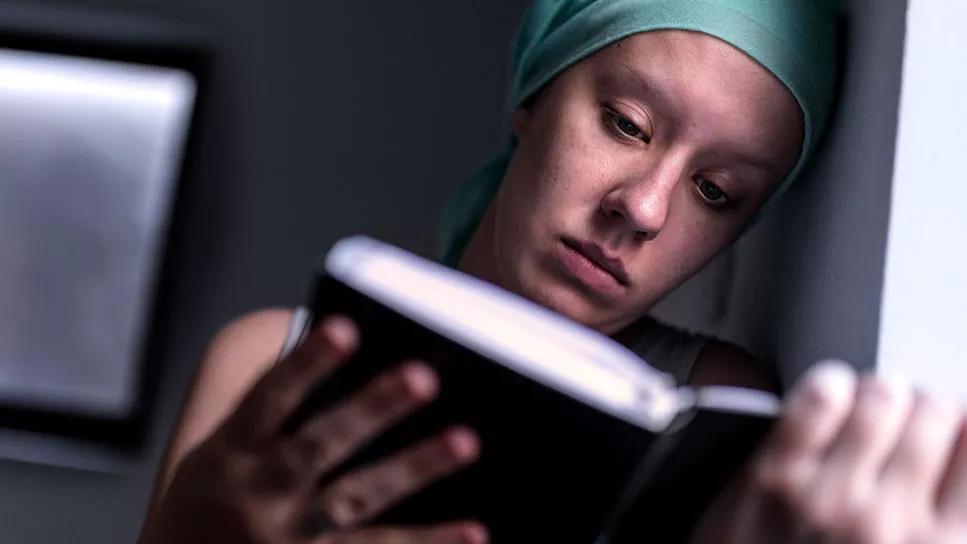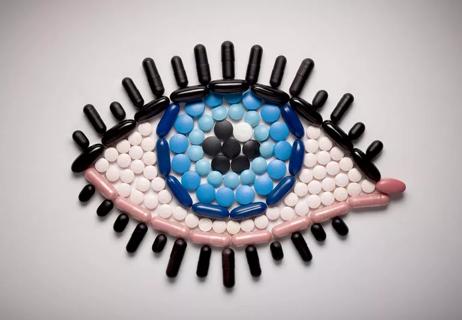Medications, tubing and stress can steal away the ZZZs you need

Cancer treatment taxes your body in so many ways. The fatigue can be almost paralyzing. Quite simply, calling chemotherapy, radiation therapy and other treatments “exhausting” seems like an understatement.
Advertisement
Cleveland Clinic is a non-profit academic medical center. Advertising on our site helps support our mission. We do not endorse non-Cleveland Clinic products or services. Policy
And yet somehow, sleep frequently remains an elusive dream for those battling the disease.
“It’s a cruel irony that sleeplessness often goes hand in hand with fatigue following cancer treatment,” says oncologist Tiffany Onger, MD. “It’s one of the most common concerns we hear.”
So, let’s look at some of the reasons behind these restless nights — and what you can do to get those much-needed ZZZs.
Video content: This video is available to watch online.
View video online (https://cdnapisec.kaltura.com/p/2207941/sp/220794100/playManifest/entryId/1_mx5lj0v5/flavorId/1_5f3sgelj/format/url/protocol/https/a.mp4)
If you’re undergoing treatment for cancer, there are definite forces that can leave you wide-eyed at night. “It’s multifactorial, with many different things working against getting good sleep,” says Dr. Onger.
Common reasons include:
Advertisement
Sleep deprivation can affect you physically and emotionally. If you’re in the middle of cancer treatment, that’s a side issue that works against the healing process.
Talk to your healthcare provider if you’re unable to fall or stay asleep at night for more than a few days, recommends Dr. Onger. They can help you identify the potential cause and work toward a solution.
Keeping a sleep diary may help the process. Chart the times you’re asleep and awake, as well as what you think may be contributing to any insomnia. It may provide the clue behind your wakefulness.
“Don’t let sleep problems linger,” encourages Dr. Onger. “Start a discussion, because there are always options to help.”
One important note, though: Don’t adjust any prescribed medications on your own to try to address sleep issues. Talk to your doctor about options.
Medication can sometimes be used to bring on those needed ZZZs — but they’re not right for everyone. “Sleep aids can play a role, but we want to be thoughtful and careful as we’re adding in more medicines during the cancer journey,” says Dr. Onger.
Good sleep starts with good sleep hygiene, a fancy term describing your overall bedtime routine and bedroom environment. Sometimes, making simple changes can lead to a restful night. Here are 10 things to try.
Advertisement
There’s no question that cancer treatment brings challenges. Know that you’re not alone in dealing with issues like insomnia. And during those difficult times, realize that the situation is temporary.
“Treatment side effects like sleeplessness don’t last forever,” reassures Dr. Onger. “They may persist longer than anyone wants, but the expectation is that things will get better.”
Advertisement

Sign up for our Health Essentials emails for expert guidance on nutrition, fitness, sleep, skin care and more.
Learn more about our editorial process.
Advertisement

Your care team can help you manage the side effects of surgery, chemo and radiation — but you have to let them know what you’re experiencing

Some drugs come with visual side effects

This breathing technique can help protect your heart during treatment for certain types of cancer

Lung cancer and treatment can take its toll, but support is available to help you live well

Getting your treatment plan just right can take some fine-tuning, but the appointments will taper off

Side effects like nausea and fatigue are common, but there are ways to feel better

Dehydration, medication and nasal congestion are common culprits

Chemo cold caps may help you keep more of your hair during therapy

Even small moments of time outdoors can help reduce stress, boost mood and restore a sense of calm

A correct prescription helps your eyes see clearly — but as natural changes occur, you may need stronger or different eyeglasses

Both are medical emergencies, but they are very distinct events with different causes